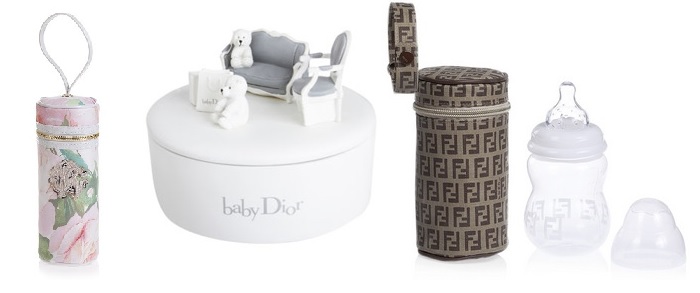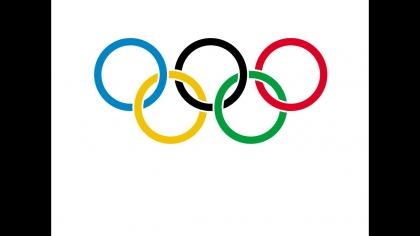Updated: Tokyo 2020 Postponed To 2021
International Olympic Committee President Thomas Bach and Japanese Prime Minister Abe Shinzo held a joint press conference on March 23 to announce that the 2020 Tokyo Olympics have officially been postponed.
“In the present circumstances and based on the information provided by the WHO today, the IOC President and the Prime Minister of Japan have concluded that the Games of the XXXII Olympiad in Tokyo must be rescheduled to a date beyond 2020 but not later than summer 2021, to safeguard the health of the athletes, everybody involved in the Olympic Games and the international community,” stated an IOC release.
“The leaders agreed that the Olympic Games in Tokyo could stand as a beacon of hope to the world during these troubled times and that the Olympic flame could become the light at the end of the tunnel in which the world finds itself at present,” the release continued. “Therefore, it was agreed that the Olympic flame will stay in Japan. It was also agreed that the Games will keep the name Olympic and Paralympic Games Tokyo 2020.”
On March 23, IOC member Dick Pound told USA Today that the 2020 Tokyo Olympic Games would be postponed, likely to 2021. More details will be worked out over the next four weeks.
“On the basis of the information the IOC has, postponement has been decided,” Pound told USA Today. “The parameters going forward have not been determined, but the Games are not going to start on July 24, that much I know.”
This comes on the heels of a March 22 announcement by the IOC that it would make a decision regarding whether the 2020 Tokyo Olympics would run as scheduled within a month. In response to pressure from national federations, the IOC executive board members said they would step up their scenario-planning for the Games.
Following the meeting, Bach penned a letter to athletes, saying, “Human lives take precedence over everything, including the staging of the Games. The IOC wants to be part of the solution. Therefore we have made it our leading principle to safeguard the health of everyone involved and to contribute to containing the virus. I wish, and we all are working for this, that the hope so many athletes, [national Olympic committees] and [international federations] from all five continents have expressed will be fulfilled: that at the end of this dark tunnel we are all going through together, not knowing how long it is, the Olympic flame will be a light at the end of this tunnel.”
Concerns include the availability of critical venues and hotel rooms and that the international sporting calendar for at least 33 Olympic sports would need to be adapted.
Both the Canadian and Australian Olympic Committees released statements on March 22 saying they would not send athletes to the Games as originally scheduled due to the risk associated with the pandemic.
“The [Canadian Olympic Committee and Canadian Paralympic Committee] urgently call on the International Olympic Committee (IOC), and the International Paralympic Committee (IPC) and the World Health Organization (WHO) to postpone the Games for one year, and we offer them our full support in helping navigate all the complexities that rescheduling the Games will bring,” stated the joint release from the Canadian committees. “While we recognize the inherent complexities around a postponement, nothing is more important than the health and safety of our athletes and the world community.
“This is not solely about athlete health—it is about public health. With COVID-19 and the associated risks, it is not safe for our athletes, and the health and safety of their families and the broader Canadian community for athletes to continue training towards these Games,” the statement continued. “In fact, it runs counter to the public health advice which we urge all Canadians to follow.”
The Australian Olympic Committee met via teleconference and told its athletes to prepare for the Olympics in 2021 following the IOC announcement of a possible postponement.
“We have athletes based overseas, training at central locations around Australia as teams and managing their own programs,” said AOC Chief Executive Matt Carroll in the organization’s press release. “With travel and other restrictions this becomes an untenable situation.
“The IOC had adopted the key principles of putting athlete health first and ensuring it acted in their best interests and the interests of sport,” he continued. “This decision reflects those principles. We are now in a position where we can plan with greater certainty.”
Both USA Swimming and USA Track and Field had also called for the Games to be postponed.
USA Swimming posted a letter penned by CEO Tom Hinchey III to the U.S. Olympic and Paralympic Committee CEO Sarah Hirshland on March 20.
“As this global pandemic has grown, we have watched our athletes’ worlds be turned upside down and watched them struggle to find ways to continue to prepare and train—many for the biggest competitive opportunity of their lives,” stated Hinchey in his letter. “Our world class swimmers are always willing to race anyone, anytime and anywhere; however, pressing forward amidst the global health crisis this summer is not the answer.”
USA Track and Field CEO Max Siegel followed suit on March 21.
“We acknowledge that there are no perfect answers, and this is a very complex and difficult decision, but this position at least provides our athletes with the comfort of knowing that they will have adequate time to prepare themselves physically, mentally and emotionally to be able to participate in a safe and successful Olympic Games and that they can shift their focus toward taking care of themselves and their family,” his letter said.
Original article: https://www.chronofhorse.com/article/ioc-member-says-tokyo-2020-will-be-postponed
Read in Magazine
You must be logged in to post a comment.
click here to log in













































